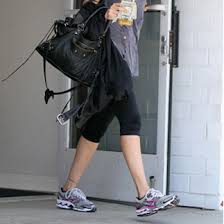Are you traveling over these upcoming holidays? Yes? That means time on the road, possibly in airports and definitely away from home. It can be very easy to get away from your home based training plan when you travel and that might spell trouble for your spring goal. Luckily, there are five simple things you can do to stay on track no matter where you are.
Pack for activity. With on demand workouts available 24-7 there’s no reason you can’t train where ever, whenever. Resistance bands and tubes are small enough to fit in any carry on so there go your excuses. If your bulky running shoes won’t fit in that carry on, wear them. Same goes for a heavy cold weather coat.
Schedule activities. Find out what there is to do in your destination. Being in a new place is the perfect time to try something new. You might check out a barre class in vibrant New York City, go for a horseback ride in Wyoming, walk through wine country in Napa or scuba dive in Honolulu. Canoeing, skiing, dancing and even a long sight seeing walk will keep you moving forward. Even if it’s not your preferred mode of working on your fitness, any athletic activity will help you prevent a loss of fitness.
Use your hotel. Yes, they’re usually small, but hotel gyms give you a little space to move around. Most hold stationary bikes, treadmills, ellipticals and weight machines and some have quite modern, state of the art facilities. If there’s a pool big enough for laps or pool running, dive in. Any hotel that’s more than one story features a set of stairs, don’t be afraid to use them.
Keep a food journal. Remember the 80-20 rule and find healthy choices while you travel. There’s nothing wrong with an indulgence now and then, we’re only human after all, but remember that too much can set your training back. Keeping a diary of what you’re eating can help you realize if you’ve gone too far off track simply by bringing awareness.
Expect to have a tough first few days back. Your body might still be recovering from jet lag or overindulging in food and drink. Your muscles need a chance to get back in gear, too. Stay hydrated, especially if you’re flying (8 ounces of water for every hour in the air) and try to plan for a recovery day once you’ve arrived back at home.
Coach Meredith

 training volume and intensity fluctuate.
training volume and intensity fluctuate.